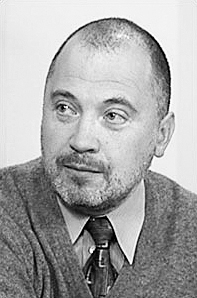 Nikolai Petrov
Nikolai PetrovThe recent reshuffle among the government's top economics officials was intended to stimulate economic growth and push the country out of its current stagnation. Elvira Nabiullina was appointed head of the Central Bank, Alexei Ulyukayev was appointed economic development minister, and Andrei Belousov was appointed "economic tsar."
But the changes also indicate that President Vladimir Putin is either unwilling or unable to implement a clear economic strategy and that the government of Prime Minister Dmitry Medvedev will remain in place for at least one more year. Having opted not to replace the government now, it is unlikely Putin will change it prior to the Winter Olympics in Sochi that will be held in February. The inevitable confusion and instability that would result might come at too high a price.
It seems that recent appointments increase the likelihood that early State Duma elections will be called in fall 2014. If the early snap election for the Moscow mayor goes smoothly and if the People's Front for Russia proves a successful substitute for United Russia, it is logical that Duma elections will also be forced. After all, why wait until 2016, when the ruling party would have to make an all-out effort to win voter confidence and support?
By ensuring control over the Duma while the general mood is still positive and the People's Front enjoys a measure of popularity, the authorities would be attempting to put an end to the political crisis and its costly policy of social populism. The budget is already unable to meet the demands of Putin's generous promises for social spending, and those shortfalls will only grow over time. The plan is to take advantage of support from state employees who have been given substantial raises this year. This is the so-called paternalistic middle class that the ruling regime has been actively cultivating as a counterweight to the protest movement.
Belousov's appointment as "economic tsar" was done in hopes that he would use a firm hand to placate both citizens and the ruling elite. The idea is to wait until after elections to look for a new economic model and to try various liberal economic experiments. The liberal but pliable Nabiullina was appointed head of the Central Bank precisely because she will not defend the Investment Fund to the death against encroaching government spenders. Ulyukayev would have defended that fund in his previous capacity as deputy head of the Central Bank, but as the newly appointed Economic Development Minister, it will be his job to sanction that spending.
In the event of early Duma elections in fall 2014, Putin can replace the current Duma that has been discredited by United Russia with his own People's Front-dominated one.
The weak link in this plan for delayed liberal economic reforms, however, is the fact that the balance of power has shifted significantly toward the siloviki. That has caused the state machinery to lurch dangerously off course. If that derailment is not corrected in time, Putin could become a hostage to his loyal servants, whom he has empowered over the past decade. Simply reshuffling a few senior posts will accomplish nothing. Only decisive action can solve this problem.
Nikolai Petrov is a professor of political science at the Higher School of Economics.
A Message from The Moscow Times:
Dear readers,
We are facing unprecedented challenges. Russia's Prosecutor General's Office has designated The Moscow Times as an "undesirable" organization, criminalizing our work and putting our staff at risk of prosecution. This follows our earlier unjust labeling as a "foreign agent."
These actions are direct attempts to silence independent journalism in Russia. The authorities claim our work "discredits the decisions of the Russian leadership." We see things differently: we strive to provide accurate, unbiased reporting on Russia.
We, the journalists of The Moscow Times, refuse to be silenced. But to continue our work, we need your help.
Your support, no matter how small, makes a world of difference. If you can, please support us monthly starting from just $2. It's quick to set up, and every contribution makes a significant impact.
By supporting The Moscow Times, you're defending open, independent journalism in the face of repression. Thank you for standing with us.
Remind me later.






